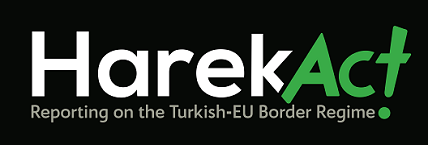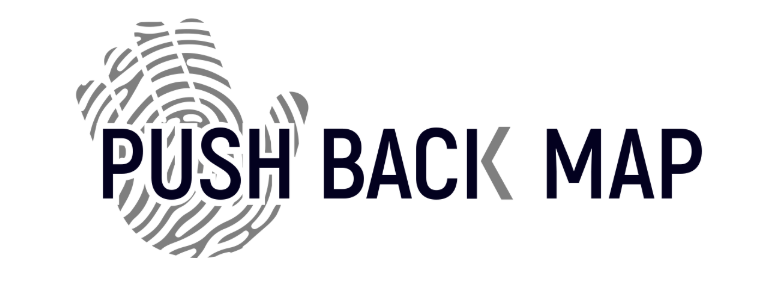17th – 23th June

Syrians’ role in the elections | Women’s Community Center Izmir is looking for financial support | New Push Back Map started |
News & Reports
Syrians’ role in the elections
In last weekend’s controversial rerun of Istanbuls mayor elections, Ekrem Imamoglu, the candidate of the Republican People’s Party (CHP) won against the AKP candidate Yildirim. Al-Monitor published an interesting peace on the role of Syrians with new Turkish citizenship in the Istanbul mayor elections.
While outreach by the CHP to Syrians has been practically non-existent, the AKP has Arabic-speaking canvassers. The AKP has long presented itself as a champion of the Syrian refugees, a relatively easy task when faced with an opposition that has availed itself of nationalist, anti-Syrian rhetoric to try to win over Turkish voters. […] As the Turkish public’s sentiment shifted in favor of sending refugees back to Syria, the AKP transitioned from talk of integration to promises that plans are in the works for their repatriation.
Women’s Community Center Izmir is looking for financial support
Wothouq is a planned community center in Izmir, providing a safe space for female* refugees to access essential support to navigate the various social, cultural, and economic barriers to their social mobility and integration into Turkish society. Visit their betterplace campaign for further information.
New Push Back Map started
A group of activists from South East of Europe, whom we are connected to through common networks such as bordermonitoring and kritnet, have initiated The Push-Back Map, a tool to map, document, visualise and denounce push-back practices at the European borders.
We want to use this occasion to point to the relevance and urgency of this topic, also in regard to the EU-Turkey border regime. We have consistently reported on the systematic push-backs at the Greek-Turkish land border by Greek police and military. This unlawful practice has been increasing, particularly since last year. Accordingly, the Push-Back Map lists several incidents around the Evros river. Human Rights Watch published a report about these incidents at the end of last year with further information.
In addition there have been – fewer in numbers – pushbacks at the Bulgarian-Turkish border as well as push-backs at sea in the Aegean as reported by the Push-Back Map. Especially regarding the latter region, we have reported several incidents in the last years, often documented by groups such as WatchTheMed Alarm Phone or Refugee Rescue. You can find a summary of incidents on our report on the situation in the Aegean Sea.
The map focuses on incidents at the European borders but regarding the case of Turkey, these unlawful practices are also happening on Turkey’s other border, mainly to Syria, often carried out by Turkish law enforcement. Since Turkey stopped its ‘Open Door Policy’ towards Syrians, introduced visa duty and build a concrete border wall along the Turkish-Syrian border, several incidents of push-backs have been reported. Shortly after the EU-Turkey Deal in 2016, Amnesty International reported on large-scale push-backs.
Please find the announcement statement by the Push-Back Map with further information below:
The Push-back Map – A Tool to Collectively Fight the Repressive Border & Control Regime
Currently we are witnessing an increase in institutional violence across Europe. At the EU’s borders expulsions, direct deportations, readmissions and other forms of forced returns across borders are happening on a daily basis. These violent practices are called push-backs. They are a systematic institutionalised technique used to suppress movement across borders. With our newly developed online tool The Push-back Map, www.pushbackmap.org, we aim to map, document, visualise and denounce these practices.
“We were walking in the forest before we reached the bus station […] I saw a police patrol, they were searching the area and [we] turned around from the police and went down into the forest. […] They never gave us the chance to ask for [asylum]… the officers started to beat [me] and kick with their shoes.”
Account of a push back from Croatia to Bosnia by an Iraqi minor, January 21, 2019
The Push-back Map is a collective space of resistance against the EU border control regime. It aims to visualise the struggles of crossing, challenging and fighting state sovereignty. Mapping push-backs means therefore also mapping resistance, mapping the never ending movements across and against borders! This map intends to document this continuous struggle collectively and wants to give people a tool to report experienced or witnessed push-backs keeping the struggle up!
The map was developed by a collective of activists in the South East of Europe, where push-backs are rampant. However, it does not have any geographical limitations, because push-backs are a global phenomenon and must be fought transnationally. We hope to provide a platform to aid this grassroots political organising across borders.
The Push-back Map begins documenting with the closure of the Balkan Corridor in March 2016. Although push-backs have been a normalised practices before, we believe this date symbolises the re-enforcement of this brutal practice.
We are tired of talking about dehumanised, depoliticised victims who, supposedly, cannot speak for themselves, we want to talk with and to people which do not have any other choice than challenging those borders. We want to collect, expose and remember what happens everyday at the European borders.
“I try again and if it doesn’t work again, I lost my country, I don’t care.”
Young man from Syria after being pushed back from Bosnia to Montenegro, May 9, 2019
www.pushbackmap.org // info@pushbackmap.org // www.twitter.com/pushbackmap

